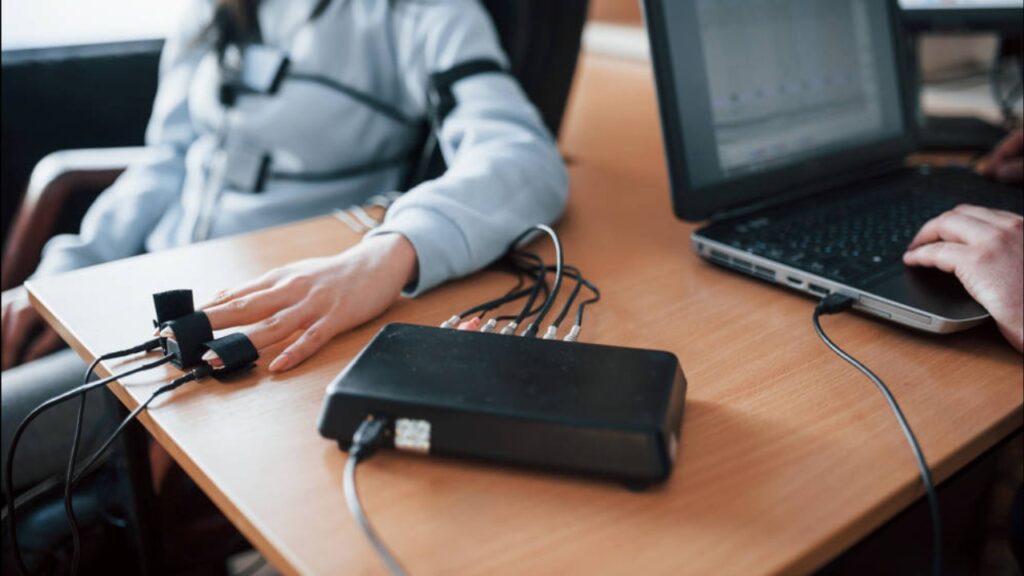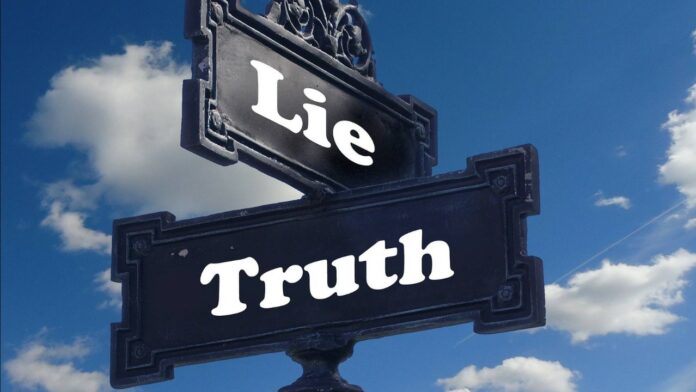Lying is an interesting concept as many people consider it to be one of the humans’ strongest instincts. A lot of people often lie to get out of tricky situations or get things done their way. Some do it subconsciously, and others find it appealing and amusing.
Research has shown that people, on average, lie about once or twice a day. As disturbing as it may sound, this is backed by studies and surveys. So the question arises, “how to know when someone is lying to you?”
If you have been looking for an answer to that question, let’s jump right into it.
Table of Contents
Why Do People Lie?
As mentioned above, lying is an instinctive behavior for many but isn’t the case for everyone. “Why do people lie?” This question has been a hot topic for decades now. So much so, even we basic mundane humans kept wondering why we do it?
Well, to answer your question, one of the reasons could be self-defense. When people like they have to protect themselves from an unwanted situation or conflict, they lie. Moreover, one of the most common reasons behind people lying is them doing something that may anger a friend or family. To avoid that, they decide to deceive them.
In contrast, lying does not always have to be for a selfish reason. Many people lie to protect someone’s feelings. These sorts of lies are known as white lies. People depend on white lies when they know the truth will cause pain to someone they care about.
Lastly, the most typical reason for someone to lie is to hide something. Maybe it’s a secret they don’t want anyone to know, or it’s something they are ashamed of and will do anything to hide it. In scenarios as such, people end up lying.
How To Spot A Liar?
We often wonder how honest people are to us. Among all the people we know, how many of them are genuine, and how many are feeding us lies. So, it is essential to know how to spot a liar so that you never get deceived and taken advantage of.
Here are some tips and tricks that will help you spot a liar
-Trust Your Gut
This has to be our first tip to you because there is nothing greater than our gut feeling or instinct. If you feel like someone is lying to you or trying to take advantage of you, act upon it. Start investigating, question the person more. Remember that our gut feeling is one of the first and most effective ways to determine if someone is lying to you or not.
-Ask To Tell The Story In Reverse And Ask Detailed Questions
Remember, most liars don’t keep track of what they say when they lie. You can take advantage of that by asking their side of the story in reverse. Kindly ask them to repeat the entire thing from last to first.
The odds are that it won’t match most of the time, and they will mess up their story. To add to it, lying is more demanding both physically and mentally. This is because liars use more energy to monitor their own behavior and assess others’ responses. The reasoning behind this may be the constant fear of getting caught.
In addition to this, for verifying whether they are lying or not, ask detailed questions. Ask them hard questions related to their story. Remember, as we mentioned above, lying is more demanding, so asking detailed questions will overwhelm them and result in them giving in.
-Read Facial Expressions And the Tone of Voice
There is a saying that when someone is lying, you can see it in their face. Well, we are here to tell you this is very true literally. It is possible to spot a liar by focusing on their facial expression and tone of voice.
How, you may ask? To answer your question, when someone is lying, they are often nervous. This nervousness or a sense of worry results in their facial expressions being different. For example, you may see a liar acting or fidgety.
They may be continuously moving their eyes left and right. It is also likely that they will constantly blink. Moreover, they may avoid eye contact or have a sense of awkwardness on their lips when they talk.
Furthermore, as per Dr David Matsumo, a professor at SFSU and CEO of Humintell, people’s tone of voice changes when they lie. During his study, he found that Chinese people speak with a higher vocal tone when they lie, whereas Hispanics tend to use a lower vocal tone. Knowing someone’s usual tone and noticing a difference in it may help identify whether they are lying or not.
-Get A Polygraph Test

If you are in a severe need to verify whether a person is lying or not, you can ask them to take a polygraph, aka lie detector test, for you.
A polygraph test is a form of questioning where changes in a person’s physical and psychological response get observed in response to some questions. Through surveys, it was found that 80-90% results of a lie detector test are accurate. So this is the most effective way to find out whether someone is lying or not.
The process of taking a lie detector test is very simple. The test taker and the examiner go into an isolated room. There, the examinee will have some devices attached to him to measure his breathing, blood pressure, heart rate, changes in sweat glands, etc. The examiner will see the changes in the person’s physiological behavior and decide whether they are lying or not.
It will be helpful for you, as you can set the questions that need to get asked. Before the test starts, you can hand in a set of questions the examiner needs to ask. If the issue is very serious and you need to get to the bottom of things, this is the best way. Help from a qualified and certified polygraph examiner will help you spot a liar and get results faster than anything else.
Interesting Facts About Lying
- People lie more in texts and messages than when in front of you.
- Lying is not a natural behavior; it is intended
- Liars use lesser and smaller words
- Most people lie out of self-interest.
- On average, Americans lie 11 times a week
- One in 12 people lie on their resume
Conclusion
Lies can have many different reasons behind them, but the end result is always the same: damage is caused. By identifying the tell-tale signs that someone is lying to you, you can take necessary measures to protect yourself and prevent any potential damage.
In addition, knowing how to spot a liar can help you in other areas of your life, such as business dealings or social interactions. Do you have any tips or comments on how to identify lies? Share them with us in the comments below!

Jason Hubble is a certified polygraph examiner and a twenty year veteran in the field of forensic IT. He is the owner, chief examiner of Lie Detectors-UK, and the Secretary of the UKPA. He is considered by his peers to be a rising star in the field of Lie Detection having performed hundreds of tests both in the UK and Worldwide. His experience in the field of Polygraph and research into better practices within the industry make him one of the highest authorities in the field.

